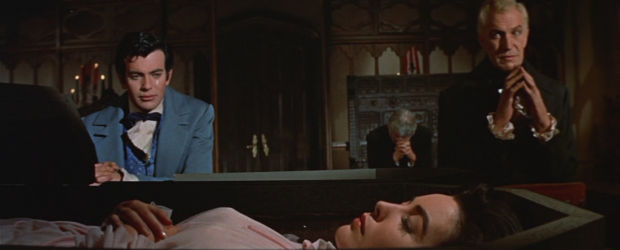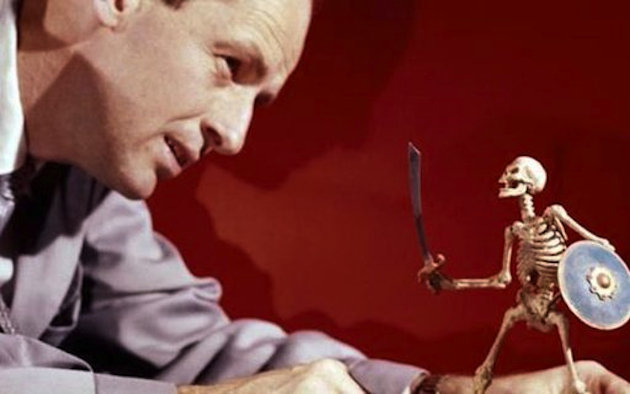Posted on Apr 15, 2013 by
NickYou can, I think, forgive me for being Hannibal Lectered out since the late ’90s and early ’00s. You see, I’m a huge fan of the films Manhunter and The Silence of the Lambs. I think Red Dragon, the novel on which Manhunter is based, is one of the greatest procedural thrillers ever written. Its semi-sequel, Silence, ain’t bad as a book, either. As the author responsible for them both, Thomas Harris created one of the greatest modern villains in literary and cinematic history in Hannibal Lecter, and Anthony Hopkins was a freaking revelation in the role in the 1991 film adaptation of Silence.
But after that, things went off the rails. In 1999, Harris published Hannibal, a direct sequel to The Silence of the Lambs. Wildly excited for it, I bought the novel in hardcover the day it was released, too early even to get it with a bestseller’s discount. I paid full hardcover price for it. The novel started brilliantly with lushly written, Grand Guignol scenes of Hannibal Lecter in Italy, but soon devolved into a rushed, bare-bones screenplay outline. (Seriously, some of the descriptions in this third-person POV novel even begin with sentences like “We first see the house from outside, then push slowly toward it…” just like in screenplays.) The novel is a mess. The ending isn’t even worth talking about, unless you enjoy it when an author essentially gives his readers the finger for having the nerve to like his work. This novel, too, was turned into a film, and it was almost as bad as the book. Changing the ending, it turned out, wasn’t enough to save it. No wonder Jodie Foster refused to reprise the role of Clarice Starling for it. (Julianne Moore does her best, but no.)
But that wasn’t all. No, the slow degradation of all things Hannibal Lecter continued unabated. In 2002, Red Dragon was needlessly remade as a film for the sole reason of allowing Anthony Hopkins to play Lecter again. (It was Brian Cox who originated the role in Manhunter.) This remake had none of the style of Manhunter, and none of the creepiness of The Silence of the Lambs. It was an exercise in money counting and little else. But it did well, which meant there was even more money to be made, and so Harris published Hannibal Rising in 2005, exploring in detail Lecter’s backstory and all the things that made him like he is, and thereby destroying the last remaining interesting thing about him. I didn’t bother reading it, or seeing the film adaptation with Gaspard Ulliel as a younger Hannibal. I just wasn’t interested anymore. By then, I was truly Hannibal Lectered out.
So you can imagine how shocked I was that I actually really, really liked the pilot episode of Hannibal, the new, if not terribly originally named, prequel series on NBC. Focusing on the uneasy, early-days partnership between FBI special agent Will Graham and official consulting psychiatrist Hannibal Lecter, the episode is directed with flourish in a style reminiscent of Manhunter (although instead of relying on “In-A-Gadda-Da-Vida” they instead make use of some of the musical effects from Pink Floyd’s The Dark Side of the Moon). Hugh Dancy is the best Will Graham since William Peterson in Manhunter (sorry, Edward Norton), playing him as slightly autistic and deeply troubled. His ability to imagine himself not just at the scene of the crime but also in the killer’s shoes is as shocking to him as it is, often, to the viewer as we watch our hero stab or shoot someone to death during these brief interludes. (On the other hand, the weird, glowing pendulum swipe at the start of these interludes is unnecessary and distracting. We get it, it’s not really happening. You don’t need to talk down to us.) Also, Laurence Fishburne does a great job as Jack Crawford, which makes me wonder why he was let go from a similar role on CSI. Ah well, their loss is Hannibal‘s gain. He’s almost as good in the role as Scott Glenn was in Silence.
But of course the success of every Hannibal Lecter story relies on Lecter himself. Here, the role falls to Casino Royale‘s Mads Mikkelsen, and he does a pretty good job. It would be tough to top Anthony Hopkins, and it would be just as tough to mimic his performance, so Mikkelsen doesn’t bother. He brings his own brand of cold aloofness to the role, and judging solely from the first episode, it works. I just wish he would tone down the accent. I don’t know how much of it is his own, natural Danish accent and how much is his interpretation of Lecter’s European childhood, but I thought it was thick enough that it got in the way of some of his line readings and would definitely prefer something a bit more subtle.
Color me impressed not only that I’m no longer as Hannibal Lectered out as I thought but I’m actually interested in a prequel TV series where I thought none was necessary. I suppose it’s because there’s more fertile ground to be tilled here than in, say, A&E’s new prequel series Bates Motel, which doesn’t interest me in the least. While Psycho definitely does not need its backstory filled in, there’s a tantalizing blank slate to Will Graham and Hannibal Lecter’s brief partnership before Graham eventually discovered what Lecter was and put him away. They can do almost anything with this series, go almost anywhere, and in the midst of it they can explore the psyches of two of commercial fiction’s most interesting characters. I’m happy to take the journey with them.





